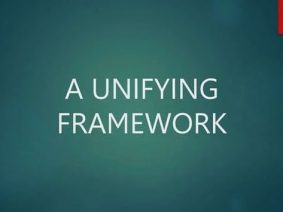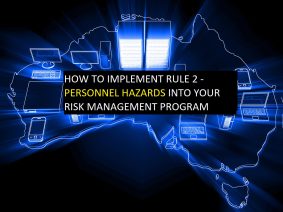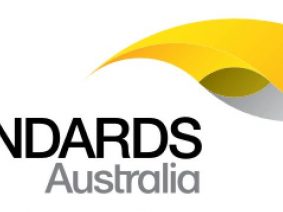Guest #1: Our company has been discussing the necessity of obtaining a Police check for successful applicants, as part of our recruitment process. We discussed which roles a Police check should be requested for, and we concluded that whilst support roles, such as finance, HR and technology require trust and responsibility for the Company’s confidential/sensitive data, it does not necessarily reduce the risk of fraudulent activity. There is the also the argument that our operational roles will come into contact with our Client’s sensitive information. In addition, I have been advised that some research suggests that most fraudulent activity is conducted by people in operational roles.
Guest #2. We currently use Fit2Work.com.au for all hires and the process is efficient is 100% online.
Guest #3. There are two reasons we recommend that all employers conduct a police check on new employees, as part of a larger probity check. For externally facing employees, conducting probity checks is akin to an insurance policy, where should an organisation find itself defending against a lawsuit for employee misconduct, the organisation can demonstrate it had appropriate policies in place to reasonably assure its employees are of good standing. For internally facing employees, the second reason is internal risk prevention. There are many instances of fraud conducted by an employee causing significant damage to a company across many levels. Probity checks go a long way towards mitigating the risk on both fronts.
Cleard.life: Let’s say that you do a police check and a ‘disclosable court outcome’ appears – now what?! As a recruiter, do you turn into an investigator – who, what, when, where, why etc? Quite awkward when you don’t have much experience in that arena. We use the same methodology that government security vetting agencies use to determine a person’s suitability – ie. we rate character traits: honesty, trustworthiness, tolerance, maturity, loyalty and resilience. As an employer, you don’t need to know all the nitty-gritty, personal and sensitive details, exposing you legal risk for discrimination etc, but you want to know that you are hiring someone safe – safe enough to access SECRET or TOP SECRET information: a pretty good benchmark, I would say.
Cleard.life: Also bear in mind that you don’t want to be in a position where you don’t hire the right person for the wrong reasons. Disclosable outcomes are not 100% correct, in our experience. So you having a one-on-one conversation with the Candidate, to establish facts is important, then do the risk assessment / analysis.
Guest #4: Just because a clear police check is certainly no guarantee whatsoever that a person is honest and has integrity.
Cleard.life: Some HR recruiters are ‘incapable of being impartial’. Having a third party group handle the investigation & risk assessment is one way to do this. Again, it also reduces the risk of discrimination. We also work with Psychometric Assessments daily and they are helpful but in our opinion not as valuable as sitting down with willing Candidates, one-on-one, for a few hours.
Cleard.life: When you go for credit, you get a credit check and you are scored. When going for a position of trust, your trust should be checked.
Cleard.life: A candidate only gives you a slice of information which relates to a position they are applying for. How can you be sure there are no “skeletons” in their personal life which might impact the person’s trustworthiness? We attempt to quantify trust and offer that advice to Hiring Managers for their due consideration as they consider the candidate’s fitness for the job.
Guest #4: What do you mean by “skeletons in their personal life which might impact the person’s trustworthiness?” Please provide some examples. And how do you quantify trust?
Cleard.life: Q. “Please provide some examples” … sure:
External loyalties, influences and associations
Personal relationships and conduct
Financial considerations
Alcohol and drug usage
Criminal history and conduct
Security attitudes and violations
Mental health disorders
Cleard.life: Q. How do we quantify trust? We interview the Candidate & cover topics:
Background & Family structure
Education & Employment
Personal Relationships
Allegiance & Loyalty
Substance Use
Illegal conduct
Emotional health
Financial
Personal conduct
Then we distil any detected concerns & then quantify trust:
1 = Unacceptable, 2 = Below Average, 4 = Acceptable, 5 = Excellent
Guest #4: So you act as judge and jury regarding their perceived “skeletons in the cupboard” and trustworthiness. That’s pretty scary. Sounds like it’s approaching positive vetting.
Cleard.life: We do in fact use Positive Vetting Assessing Officers – so yes it approaches PV. “judge and jury” … well, technically based on the Attorney General’s Adjudicative Guidelines. Not as scary as you make it sound: with more than 350,000 active security clearance holders in Australia (everyone of them since 2010 screened through AG guidelines), it is a pretty good socially acceptable normal benchmark. A SME’s recruitment department may see value in having a fully qualified Vetting Officer on their side giving them their well reasoned advice.
Guest #4: I can understand the requirement for more detailed scrutiny for people who need security clearance, but this topic is about average employees for whom there is no legal requirement for even a police check, let alone the level scrutiny you are talking about. If all employers started to apply that level of scrutiny, they would struggle to hire any staff. Furthermore, if that scrutiny was applied retrospectively, they would probably have to fire quite a few people. There are probably a few MPs past and present who wouldn’t pass muster.
Cleard.life: Strangely, MPs are not vetted, as they are public figures and have been in theory publicly vetted via votes. (fired=voted out of office). We offer three levels of ‘scrutiny’ depending the depth required and the position of trust. The basic level (equivalent to a NV1/SECRET depth) is about a one hour, one-one-one conversation with the Candidate. We never disclose any ‘issues of concern’ with the employer. We simply state our Recommendation: NO WAY, DOUBT IT, THINK SO, FOR SURE. If your Candidate has has been arrested, charged or convicted in the past, wouldn’t you want that to be canvassed by an expert before hiring that person? If it comes to light after the fact, then you might be opening yourself up to a negligent hiring minefield, as Guest #3 noted. Having spent alot of time and energy ranking their competence for the position and they are now on your shortlist, simply consider a high-grade suitability check as a way to show due diligence. I am sure that you place more than an average amount of trust even in your average employees. (And who hires ‘average’ employees anyway?)






